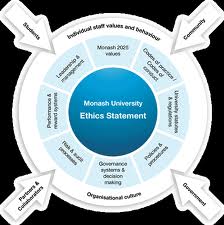virtues and traits of characters which the ethics consultant must strive
the virtues and traits of character listed in the Profile represent the ideal toward which the ethics consultant must strive. In addition to certain dispositions of the mind, effective ethics consultation requires certain dispositions of the heart, hence, the importance of virtue and character. Acknowledging human frailties, however, the virtues and traits of character are not proposed as minimum standards, but rather as standards to be pursued! practiced over a lifetime.
the knowledge, abilities, virtues, and traits of character listed are neither exhaustive nor immutable. On reflection, there may be requirements listed that should be deleted, and others that should be added. Proposed changes to the Profile, however, should be the result of a process similar to the one that generated the Profile-from within and by consensus.
the Profile of the health care ethics consultant is not a "stand-alone" document, and so to focus narrowly on the lists provided is to ignore the context within which the Profile was developed. This risks a serious misunder-standing of the initiative the Profile represents-a genuine effort to understand precisely what qualifies someone to be a health care ethics consultant.
The Profile was developed with a narrow focus on the role and responsibilities of the health care ethics consultant in the clinical setting. Of particular interest were the following questions: What should the ethics consultant know? What skills should s/he have? Who should s/he be? As far as possible, the Profile was developed without any starting assumptions about professional background or practice. In the spirit of a true quest for insight into an important question, the focus was on the end to be achieved (i.e., a functional description of the health care ethics consultant), and there were no assumptions made about the most appropriate means to the end. The discussion of "means to the end," found in the chapter on feeder disciplines, followed discussions of the Profile.
Finally, two brief comments are offered to those who will argue that the Profile sets the standard of practice far above that which can be achieved by the average person currently working in the clinical setting as a health care ethics consultant. First, we do not dispute the accuracy of this claim. Second, we do dispute the assumption that "what is, should be," particularly since in our view, there is a world of difference between a consultant and a dilettante, whether s/he works in ethics, medicine, engineering, architecture, and so forth. In our view, the Profile is an appropriate professional inventory of the knowledge, abilities, and traits of character required for effective health care ethics consultation.









0 comments:
Post a Comment